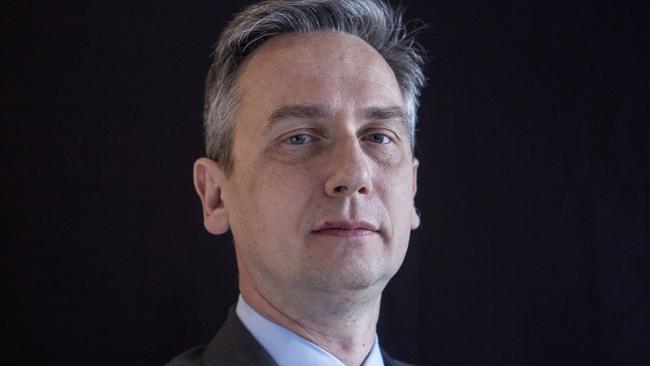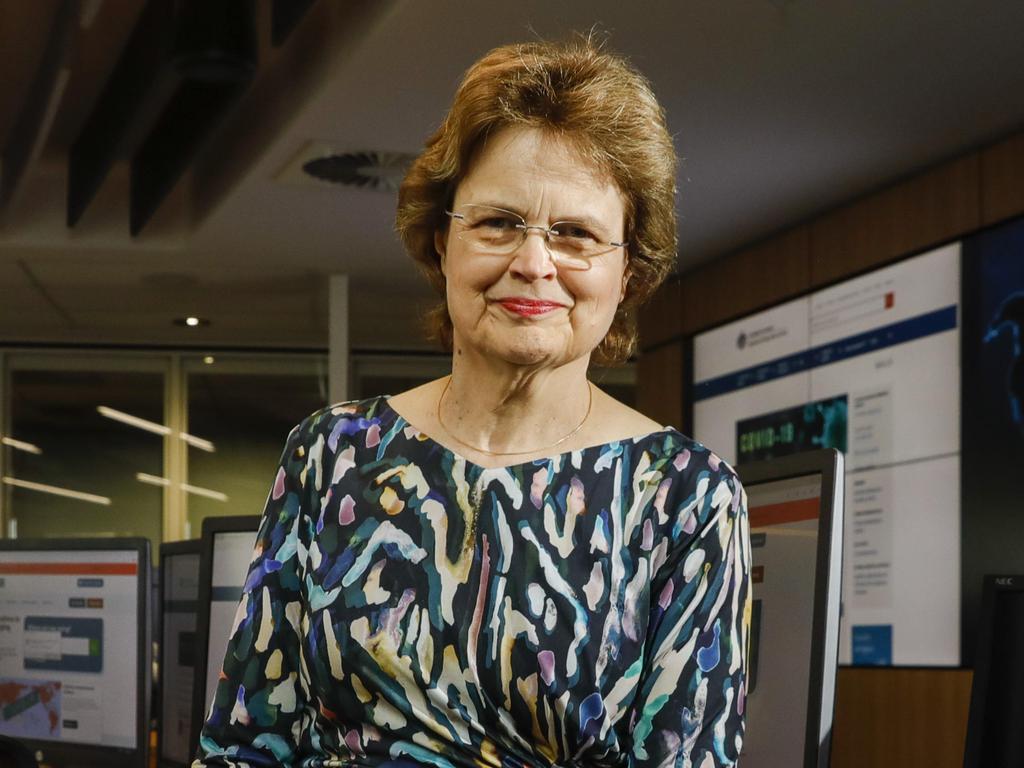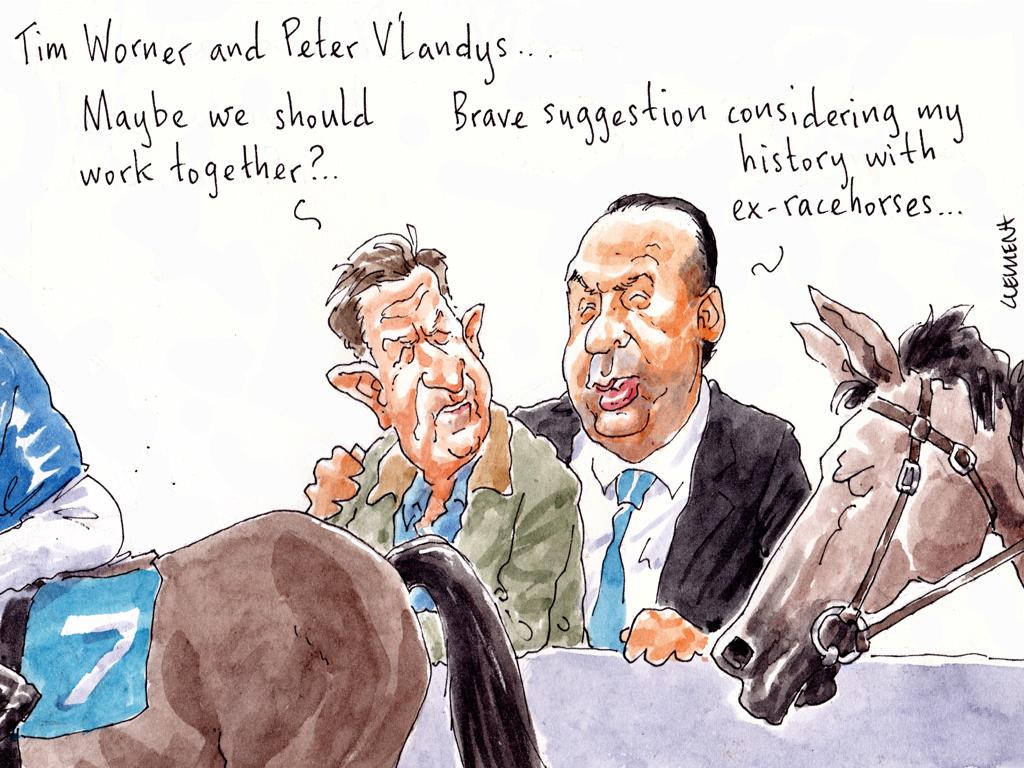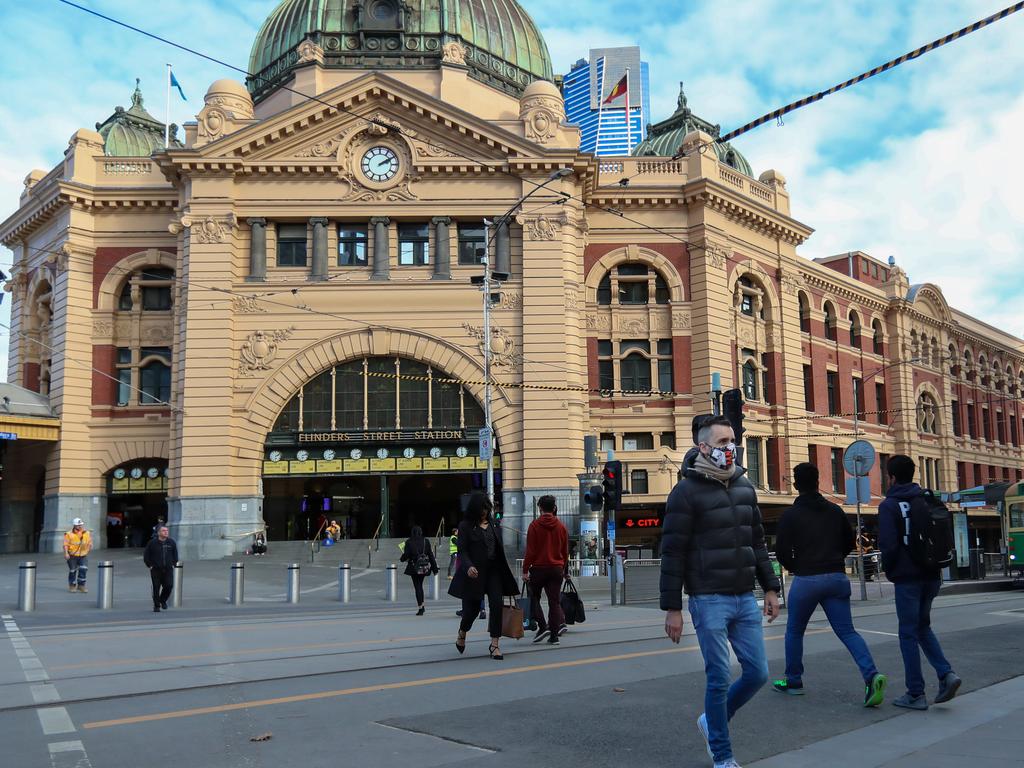CEO Jean-Sebastien Jacques out as Rio Tinto board buckles
Rio Tinto has launched an external search for a new chief executive.

Rio Tinto has launched an external search for a new chief executive as the $140bn mining giant finally buckled to investor pressure and forced the resignation of CEO Jean-Sebastien Jacques and two key executives over the destruction of heritage sites at Juukan Gorge.
Rio chairman Simon Thompson announced early on Friday the staggered departure of Mr Jacques, iron ore chief Chris Salisbury and corporate relations boss Simone Niven.
Mr Salisbury will leave the company immediately, but will be paid until December. Ms Niven will be given time to complete an “orderly transition of her responsibilities” and will also be paid until December.
French-born Mr Jacques, who last year was paid $10.1m, will remain at the helm of Rio until a replacement is found, or until the end of March next year. With no obvious internal successor this will give Rio time to secure a new chief executive.
Mr Jacques’ exit highlights the turmoil in Rio’s top ranks, with the miner washing through three CEOs in just seven years. Rio said Mr Jacques’ exit was by “mutual agreement”.
All three executives will retain their rights to payments under Rio’s long-term incentive plan.
Following ongoing criticism that Rio’s board is too London-centric, one of its three Australia-based directors — former Macquarie banker Simon McKeon — will be appointed a senior independent director.
Even so, Mr Thompson may still face pressure over the board’s failure to take stronger action as the reputational disaster unfolded after the destruction of the sites in May.
Only weeks ago he was defending his key executives as the best people to lead Rio through its crisis. Speaking to The Weekend Australian, he stopped short of admitting the board had failed to appreciate the depth of community and stakeholder anger.
“The question for us was who was best placed to lead the necessary changes. And the point of our engagement over the last couple of weeks was to listen to the views of our stakeholders, and it became clear in our engagement that this question of individual accountability really was hindering our ability to rebuild trust,” Mr Thompson said.
“And if those three individuals do not have the confidence of critical stakeholders to lead the required changes then clearly we have to move on, and we have to make sure we put people in those roles who will have that confidence and we can start repairing the damage that has been done to our reputation and to our relations with the traditional owners.”
Asked whether board-level changes would follow Friday’s management clean-out, and whether he had considered his own position in light of the shareholder backlash, Mr Thompson said his focus was on finding a successor to Mr Jacques.
“At this stage I am very focused on managing the succession of the CEO, which is obviously an absolutely critical decision for the board, as well as making sure that we continue to oversee the operation and financial performance of the business in the middle of the pandemic with all of the challenges that brings,” he said.
“And most important of all, making sure that we do implement the recommendations of the board review and start the process of restoring our reputation as a leader in community and heritage management.”
Investor pressure played a key role in the downfall of the trio, after an earlier board review cleared the trio of any direct blame for the destruction of the 46,000-year-old heritage sites and recommended only the loss of short-term bonuses worth about $7m.
The Australian revealed on Thursday night that the $160bn Future Fund, chaired by former treasurer Peter Costello, had added its voice to concerns about the way Rio had handled the saga, which became the tipping point for the boardroom shift.
Key shareholders that piled pressure on the board to take stronger action welcomed the move on Friday, but flagged an ongoing campaign to push Rio to improve its relationships with traditional owners.
AustralianSuper backed Rio Tinto’s appointment of Mr McKeon as senior independent director as a first step to boosting its Australian board representation and ensuring a greater awareness of the nation’s cultural identity.
The super fund “expects that this is the first step in ensuring the board is more Australian-focused and has a greater sensitivity to the nation and its cultural identity”, AustralianSuper chief executive Ian Silk said.
“Rio can now work with traditional owners to guarantee that its processes are appropriate for the protection of culturally important sites and that it has the right internal accountabilities. We will continue to take an active interest in how these changes are implemented.”
Super fund Hesta has also strengthened calls for an independent review of Rio Tinto’s deals with traditional owners.
Hesta, which manages $52bn of assets on behalf of 860,000 members, said systemic risks remained at the mining giant despite the management overhaul.
“Changes in senior leadership should not distract from the need for an independent and transparent review of all current agreements between the company and traditional owners,” Hesta chief executive Debby Blakey said.
“The nature of these agreements and how they are negotiated represents a systemic risk for investors that will not be mitigated by executive changes.
“Hesta is seeking the support of major global investors to strongly encourage the Rio board to urgently consider this matter.”
Californian superannuation giant CalSTRS — the 11th largest in the world — agreed to support a review, Hesta added.
The Australian Council of Superannuation Investors backed the departure of Mr Jacques and senior management and said it would be focusing on any exit payments to executives.
The super fund adviser had slammed Rio over its handling of the destruction of Juukan Gorge and said shareholders were focused on how it would handle the transition.
“Investors will continue to engage with Rio Tinto to understand how the company will manage this transition period,” ACSI chief executive Louise Davidson said. “We will also be looking closely at the separation arrangements, with the expectation that any exit won’t provide a windfall for executives on their departure.”
While the pending departures of the three senior executives may have reduced the immediate pressure from Rio shareholders, the company must still front a parliamentary inquiry into the destruction of the rock shelters.
Committee chairman Warren Entsch welcomed the resignations on Friday, but said Rio still had plenty of work to do.
Environment Minister Sussan Ley will convene a meeting on September 21 between federal and state environment ministers to improve the nation’s approach to cultural heritage issues.
WA’s Aboriginal Heritage Act is currently being rewritten by the state government.
Rio shares closed down 0.6 per cent at $99.86.





To join the conversation, please log in. Don't have an account? Register
Join the conversation, you are commenting as Logout